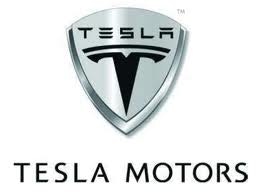When a new player enters a market using a new strategy, the business models of existing companies often come under threat. Whether it be Amazon.com, Inc. (NASDAQ:AMZN)’s Internet sales causing red ink for Borders Group, Inc. (OTCMKTS:BGPIQ) or a move toward digital photography bankrupting Eastman Kodak Company (OTCMKTS:EKDKQ), existing companies are always on guard for new methods that could negatively impact their earnings. For franchise car dealers, they have seen this threat as Tesla Motors Inc (NASDAQ:TSLA), which sells its cars directly to consumers using company-owned stores.
Time for politics (again)
Tesla Motors Inc (NASDAQ:TSLA) has inspired a firestorm of political activity from Mitt Romney, calling the automaker a “loser” to the electric vehicle tax credit offered to all EVs, to the company’s acceptance (and repayment) of a $465 million Department of Energy loan. But, new political tactics are threatening to undermine Tesla Motors Inc (NASDAQ:TSLA)’s core business model. And it begins with the Tesla Motors Inc (NASDAQ:TSLA) stores.
In many states, there are laws preventing automakers from owning dealerships. These laws were crafted with the idea of preventing major automakers from using their superior financial positions to drive franchised dealers out of business. However, these laws have become a problem for Tesla Motors Inc (NASDAQ:TSLA), despite the automaker not having any franchise style dealerships.
As one example, Tesla Motors Inc (NASDAQ:TSLA) stores in Texas are actually galleries where the cars can be shown but no sales information may be distributed. Even when Texas Tesla buyers order their car online, the automaker must deliver it in a vehicle without Tesla badges.
While this almost sounds like a car dealer joke, efforts to change this law died in the legislature despite a poll from the Austin Business Journal showing 86% support for the measure. But proposed legislation in North Carolina went even further and called for a ban on Tesla’s online sales unless the automaker adopts a franchise model. A Forbes article noted that this law would likely be struck down in court under the interstate commerce clause but the sales lost in the meantime could have hurt Tesla as it ramps up production.
Recent reports have said that the part of the North Carolina law impacting Tesla was removed from the final bill but the whole series of events shows how Tesla needs to continue to protect its own business model from state laws restricting sales.
Existing dealership models
Many analysts will compare Tesla to mass market automakers like General Motors Company (NYSE:GM) and Toyota Motor Corporation (ADR) (NYSE:TM), but with Tesla’s sales currently existing in the high-end low-volume performance segment, a better comparison for the current iteration of Tesla would be PORSCHE AUTO ADR (OTCMKTS:POAHY), now nearly entirely owned by Volkswagen AG (ADR) (OTCMKTS:VLKAY).
When Volkswagen AG (ADR) (OTCMKTS:VLKAY) took control of PORSCHE AUTO ADR (OTCMKTS:POAHY), it planned to expand the non-sports car segment of the company and use it to drive PORSCHE AUTO ADR (OTCMKTS:POAHY)’s earnings. With non-sports car models existing prior to the takeover, PORSCHE AUTO ADR (OTCMKTS:POAHY)has far more models and production volume than Tesla and like other established automakers, it has a franchised dealer network.
| Automaker | Numbers of stores or dealerships in the U.S. |
| Tesla Motors | 32* source: Teslamotors.com |
| Porsche | 189 source: Porschedealer.com |
| Volkswagen | 617 source: Bloomberg |
*includes both stores and galleries
At this time, neither PORSCHE AUTO ADR (OTCMKTS:POAHY) nor Volkswagen AG (ADR) (OTCMKTS:VLKAY) are experiencing serious sales losses due to the competition from Tesla. However, Tesla’s reach is greater than its smaller store network would imply in the numbers comparison above. With an Internet-based sales model underpinning Tesla’s overall business strategy, each Tesla store is able to serve as a way to direct potential buyers to the Tesla website or to allow the finalization of orders.
Taking a look at the number of PORSCHE AUTO ADR (OTCMKTS:POAHY) dealers, we can clearly see it is dwarfed by the number of Volkswagen AG (ADR) (OTCMKTS:VLKAY) dealerships. But this is typical of a high price lower volume automaker like Porsche where it is more cost effective to strategically place a smaller number of dealerships rather than have the expansive mass market lots characteristic of high volume automakers like Volkswagen AG (ADR) (OTCMKTS:VLKAY).
According to Bloomberg, Volkswagen AG (ADR) (OTCMKTS:VLKAY) is gearing up another wave of expansion where it hopes to sell over three quarters of a million units in 2018, passing Toyota Motor Corporation (ADR) (NYSE:TM) and General Motors Company (NYSE:GM) in the process. With this type of expansion on the horizon, the dealership side is just a part of the equation at this rapidly growing auto giant.
Store support
In contrast to many established laws and the actions of certain state legislatures, American citizens (and quite likely those of foreign nations too) generally support the ability of Tesla to sell its vehicles directly to the consumer through company-owned stores. Whether this is because of a love of competition, a dislike of traditional auto dealers, or a broad-based support for Tesla’s products, the support of the populace should help to prevent more laws restricting Tesla’s sales abilities from being passed.
Already over 100,000 people have signed a “We the People” petition on the White House website in support of a federal law to allow Tesla to sell its products in any state. With a federal law requiring bi-partisan agreement in Congress (and any agreement in Congress being well out-of-the-money) to be passed into law, it does not appear likely such legislation will occur at the federal level.
But, the support required to even get the signatures necessary for a response shows there is now a large base of Tesla supporters. And if Tesla can translate these store supporters into store goers, it could have a lot of orders on its hands.
The article An EV Maker’s Political Battle: This Time It’s About the Stores originally appeared on Fool.com and is written by Alexander MacLennan.
Alexander MacLennan owns shares of Tesla Motors. This article is not an endorsement to buy or sell any security and does not constitute professional investment advice. Always do your own due diligence before buying or selling any security. The Motley Fool recommends Tesla Motors . The Motley Fool owns shares of Tesla Motors. Alexander is a member of The Motley Fool Blog Network — entries represent the personal opinion of the blogger and are not formally edited.
Copyright © 1995 – 2013 The Motley Fool, LLC. All rights reserved. The Motley Fool has a disclosure policy.




